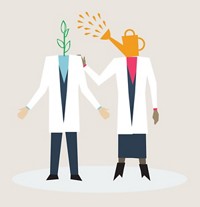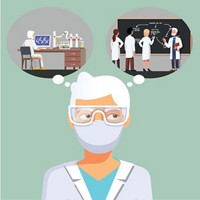Advertisement
Grab your lab coat. Let's get started
Welcome!
Welcome!
Create an account below to get 6 C&EN articles per month, receive newsletters and more - all free.
It seems this is your first time logging in online. Please enter the following information to continue.
As an ACS member you automatically get access to this site. All we need is few more details to create your reading experience.
Not you? Sign in with a different account.
Not you? Sign in with a different account.
ERROR 1
ERROR 1
ERROR 2
ERROR 2
ERROR 2
ERROR 2
ERROR 2
Password and Confirm password must match.
If you have an ACS member number, please enter it here so we can link this account to your membership. (optional)
ERROR 2
ACS values your privacy. By submitting your information, you are gaining access to C&EN and subscribing to our weekly newsletter. We use the information you provide to make your reading experience better, and we will never sell your data to third party members.
Employment
Office Hours
Independent does not mean alone
Growing as a researcher means taking more ownership, not seeking less advice
by Jen Heemstra, special to C&EN
November 7, 2021
| A version of this story appeared in
Volume 99, Issue 41

“You don’t really want to be a chemist, do you?” This was the response of my family members when, after a year of drifting through college, I fell in love with the art of making and studying molecules. Their visions of scientists were limited to those portrayed on television. So they thought my decision to pursue a career in chemistry meant that I would spend my days working all alone in a dimly lit lab at the end of a dusty hallway.
If you’ve worked in a research lab, you know that this is far from the reality of being a scientist today. Labs are generally filled with people and conversations, as researchers work together to plan experiments and interpret data. In addition, scientists are often traveling to visit collaborators, give talks, or attend meetings with hundreds or thousands of their colleagues, at least prepandemic. Science is a team effort.
While it’s apparent that the mediaderived picture of lab science is often inaccurate, I would argue that our commonly held vision of what it means to be an “independent scientist” is equally inaccurate. Upon starting our graduate career or first job, we often have the impression that we should learn each skill and solve every problem by ourselves. If that’s the case, how are we different from the fictional scientist working alone at the end of a dusty hallway? I have good news for you: independent does not mean alone.
How did we end up with this idea that being independent means never asking for help? This could be the result of how we start out in research. On our first day in the lab, we are dependent on other people—we need help to plan our experiments, find the necessary materials and reagents, and use the appropriate instruments to gather data. However, most people don’t want to stay at that place. You might have even been attracted to scientific research by the autonomy involved in developing and pursuing new ideas, the intellectual challenge of interpreting results and solving problems, or the joy of contributing new knowledge to the field. We want to grow beyond that state of dependence on others. So when we are encouraged to become an independent scientist, we swing to the other end of the spectrum. We eschew feedback on our ideas and plans, decline help with interpreting our results, and struggle in solitude when our research ideas aren’t working. But that is the definition of alone, not independent. And it hinders us from achieving our maximum research impact.
To find a way forward as scientists, we need to consider a new definition of independence. Instead of asking for less help, we need to take more ownership. When formulating ideas and plans, independence means taking the initiative to solicit feedback and filter through those ideas before deciding on the best option. In data interpretation, independence means thinking about all the possible interpretations of your results and then presenting them to someone else for a second opinion. When something isn’t working, independence means recognizing when you’ve reached the limit of your own knowledge, taking initiative to seek out someone with the appropriate expertise, asking them the right questions, and then using that information to formulate your own plan for moving forward.
Seeking help can be inherently uncomfortable, especially as an early-career scientist, because it also forces us to admit our mistakes and failures to others. However, it is worth it for the learning and success that it can foster—every time that we own the process of soliciting and analyzing advice from others, we have the opportunity to not only learn new information or techniques, but also develop our professional skills in communication, collaboration, and mentoring. And the experiment we’re struggling with is much more likely to succeed with advice than without it. Being independent allows you to approach your research in a way that leverages the reasons you wanted to be a scientist in the first place, without having to banish yourself to that dark room at the end of a dusty hallway, literally or figuratively.
Jen Heemstra is a professor of chemistry at Emory University who shares advice on Twitter at @jenheemstra. Find all her columns for C&EN and ask her questions at cenm.ag/officehours.
Views expressed are those of the author and not necessarily those of C&EN or ACS.





Join the conversation
Contact the reporter
Submit a Letter to the Editor for publication
Engage with us on Twitter